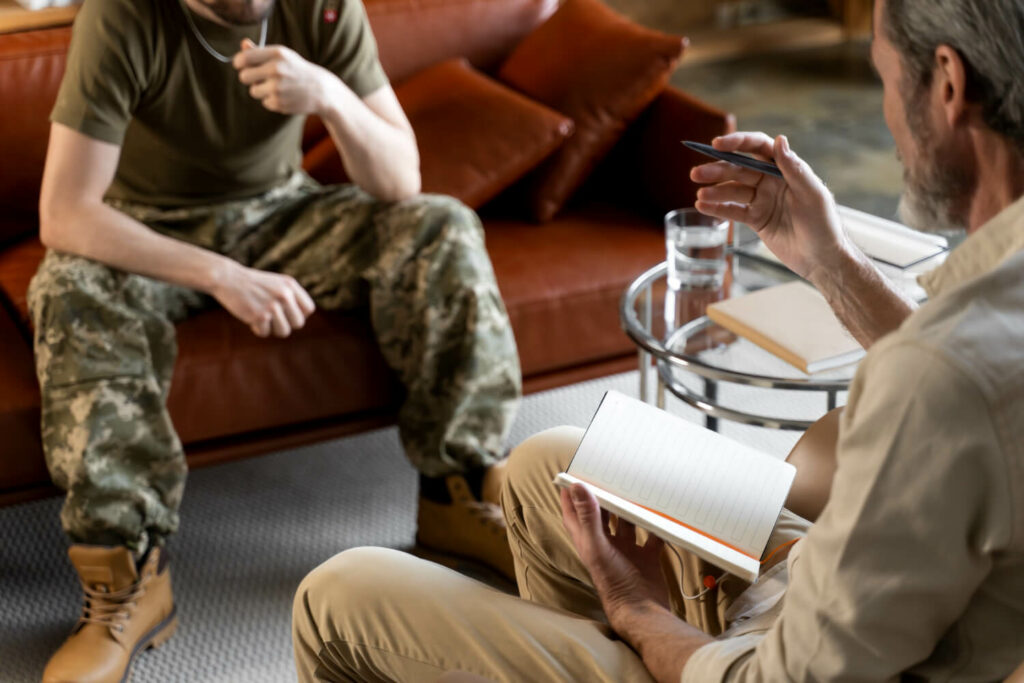As a sheriff who once served on distant battlefields, I’ve come to realize that the transition from military to civilian life is much more than a change of environment; it’s a transformation of how one applies the leadership skills honed in the armed forces. I’m Wyatt Waldron, and my journey from the Marine Corps to law enforcement has taught me invaluable lessons about the versatility and evolution of leadership.
Leadership in the Military: The Foundation
The military is a unique institution that instills leadership qualities from day one. It’s not just about following orders; it’s about understanding the weight of responsibility, the importance of teamwork, and the need for decisive action under pressure. These principles formed the bedrock of my leadership style.
In the Marines, leadership is not reserved for the high-ranking officials; it’s expected at every level. From leading a fire team to strategizing a mission, the essence of military leadership lies in the ability to inspire confidence, foster unity, and execute plans with precision.
Transitioning to Civilian Leadership
Leaving the military, I faced the challenge of translating my leadership experience into a civilian context. The transition was not seamless. The hierarchical and direct nature of military leadership had to evolve to fit the more collaborative and nuanced approach often required in civilian roles.
In law enforcement, especially within the Los Angeles County Sheriff’s Department, I found a familiar structure but a different operational tempo. The stakes were just as high, but the dynamics of leadership had to adjust. I learned to blend the assertiveness and clarity of military leadership with the empathy and adaptability necessary for community policing.
Key Leadership Skills Transformed
Decision-Making Under Pressure
In combat, making the right decision quickly can mean the difference between life and death. This acute sense of responsibility and urgency in decision-making has been invaluable in law enforcement, especially in situations that require rapid response to protect community safety.
Team Cohesion and Morale
The military excels in building team cohesion and morale, often in the most challenging environments. This aspect of leadership has translated well into my current role, where fostering a sense of unity and purpose within my team is crucial for effective community service and support.
Adaptability and Resourcefulness
Adaptability, a critical skill on the battlefield, has proven equally important in civilian leadership. Whether adapting to new laws, community needs, or unforeseen crises, the ability to pivot and find innovative solutions is a hallmark of effective leadership.
Communication and Empathy
Perhaps the most significant evolution in my leadership style has been the enhanced focus on communication and empathy. Military leadership often requires a direct and authoritative communication style. However, in my role as a sheriff, I’ve learned the importance of listening, understanding diverse perspectives, and communicating with a level of empathy that builds trust and fosters community engagement.
Challenges and Opportunities
The transition from military to civilian leadership is not without its challenges. The adjustment to a less structured and more ambiguous decision-making environment can be difficult. Additionally, the shift from a predominantly homogeneous military culture to a diverse civilian workplace requires a broadening of perspectives and leadership approaches.
However, these challenges also present opportunities for growth. They have forced me to become a more versatile leader, one who can navigate complexity with ease and relate to a broader range of people and situations.
Paying It Forward: Mentoring the Next Generation
One of my greatest passions now is mentoring young veterans transitioning to civilian careers. By sharing my experiences, I hope to ease their journey and help them see the value of their military leadership skills in new contexts. It’s about helping them to not just adapt but to thrive and lead with confidence, regardless of the setting.
A Continuing Journey
Leadership is not a static trait; it evolves with each new experience and challenge. The leadership skills I developed in the Marines continue to grow and adapt, influenced by my experiences in law enforcement and the community. It’s a testament to the versatility and enduring value of the leadership training provided by the military.
As veterans, we carry forward a legacy of leadership that, while shaped on the battlefield, continues to evolve on the homefront. It’s a journey of continuous learning, adaptation, and service—a journey that I am proud to be a part of.
In closing, the leadership journey from the battlefield to the homefront is rich with lessons, challenges, and opportunities for growth. For my fellow veterans navigating this transition, remember: the skills you’ve honed in service are invaluable, adaptable, and deeply needed in our communities. Let’s continue to lead by example, serving with the same dedication and integrity that defined our time in uniform.
